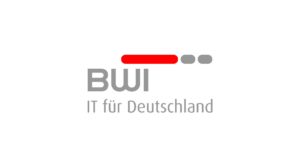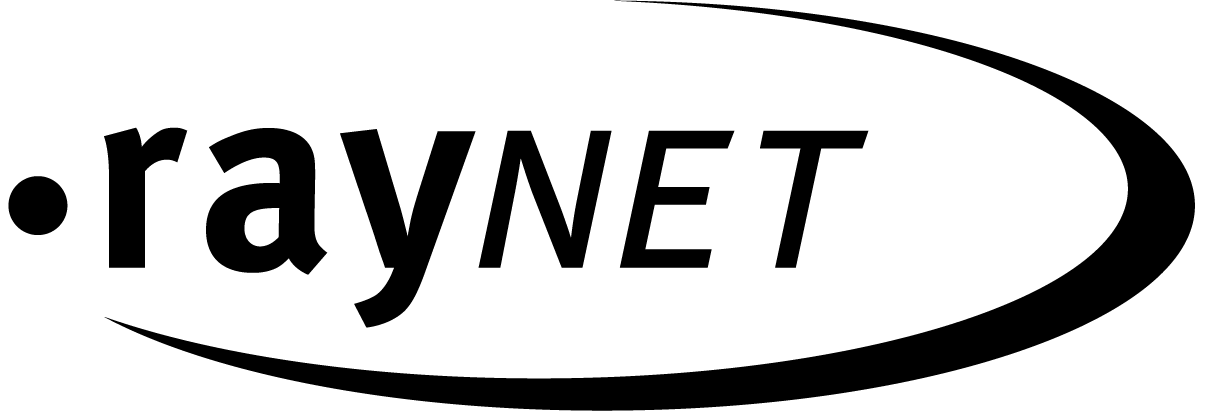// Success Story
Successful ITAM stands and falls with accurate data
Increase in packaging service
Significant cost reduction
Acceleration of workflows
In the course of the HERKULES project, BWI Informationstechnik GmbH was commissioned to operate and modernize the non-military information and communication technology of the Bundeswehr. In this context, for example, 140,000 workstations had to be migrated to Windows 7 and several hundred software applications had to be updated. The Paderborn-based Raynet GmbH provided support in order to cope with the enormous amount of work involved in managing the applications within the desired timeframe. The product and service specialists in Application Lifecycle Management (ALM) produce software packages within their “packaging factory” – fast, reliable, error-free.
Since 2006, BWI Informationstechnik GmbH has standardized and modernized the entire non-military information and communications technology for the German Armed Forces in the HERKULES project. The implementation was set up for ten years by the specially founded BWI Informationstechnik GmbH, which was supported by the Federal Republic of Germany as well as the industrial partners Siemens and IBM Germany. With a volume of around seven billion euros including VAT, the project was also the largest public-private partnership in Europe.
The Software Services department of BWI Informationstechnik GmbH had the task of providing client software on the workstation computers for fully automated installation. Installation, updating, troubleshooting and, if necessary, deinstallation took place in centralized processes. In view of 140,000 workstation computers and several hundred software products, the guarantee of error-free operation is definitely a Herculean task. It becomes truly Olympic when the operating systems have to be migrated from Microsoft Windows XP to Windows 7, as it was the case with the German Armed Forces.
The challenges for the BWI were significant, because the prerequisites for the upcoming tasks:
- Inventory, review, adjustment of the application portfolio
- Work preparation and test plan creation for propagation
- Packaging – the creation of standardized installation formats for software, updates, and patches –
- Quality assurance and
- deployment
were challenging: After several decades of decentralized software procurement, several thousand different applications in different versions had resulted in the Bundeswehr’s stock. Support for this heterogeneous landscape and guaranteed license compliance were therefore virtually impossible. This volume also prevented immediate packaging for central deployment, which first had to be prepared for efficient processing.
Packaging pilot
“BWI Informationstechnik together with the Bundeswehr founded a competence center to provide the necessary software for the HERKULES target operation. In autumn 2009, we still had to process several hundred software packages. That was a very big challenge that we had to solve at all costs.”
Dr. Thomas Mohr, Head of Software Services at BWI
BWI commissioned the ALM specialist Raynet for a three-month pilot project. At the end of the three months, Raynet had increased the output of the packaging service many times over and the costs could be significantly reduced accordingly.
After the positive experience in the pilot project, BWI decided in April 2010 to set up a packaging factory for the entire software, including the standard applications. These include Microsoft Office products and Acrobat Reader from Adobe, both of which are available in versions for Windows XP and Windows 7.
For software processing in application lifecycle management (evaluation, packaging, QA, deployment), the Raynet specialists received clear orders from BWI with requirement profiles, defined the necessary installation steps and sent back a finished package in the de facto standard MSI format (Microsoft Installer) or in one of the virtual formats used by ThinApp and App-V. The BWI also provided the Raynet specialists with a complete package for the software processing in application lifecycle management (evaluation, packaging, QA, deployment). The packaging was carried out according to the defined specifications and guidelines of the BWI or Bundeswehr and took into account their special features. In addition to the actual implementation of the necessary installation tasks, the Raynet packagers checked the effects of the rollout of the packages on the overall system in each process step. In order not to jeopardize ongoing operations, the tests were initially carried out in a test environment. In the beginning there was the manual installation and its evaluation – in particular the interaction with existing applications – followed by the test of the installation script up to the final examination of the installation by means of the MSI package. Should a problem occur at any point, the test process was restarted.
The testing effort is large, but justified. As a demanding customer, the Bundeswehr expects BWI to operate its IT without errors. Even a low error rate of only one percent results in 140,000 workstations and an enormous problem-solving effort in the user help desk. “The challenge in software deployment is not so much packaging, but 100 percent quality. There are already enough problems in systems of this size. Of course we want to avoid anything unnecessary,” explains Dr. Mohr.
Customized packaging
As Raynet’s holistic application lifecycle management, the packaging factory can be set up as a method at any time and from any location. This means an efficient and reliable outsourcing or outtasking method for the complex process of customer-specific software packaging. Clients such as BWI gain flexibility in this way and at the same time profit from cost advantages, since the specialized employees, e.g. packagers, do not necessarily have to provide their services on site. The combination of many years of expertise and technologically modern expert tools guarantees consistently high quality and throughput rates. Within three months, BWI has achieved a noticeable increase in the output of packages with the Raynet packaging factory. The RaySuite and RayFlow products used by Raynet are specially designed for such an application management and support the process optimally on the one hand and automate the tasks where appropriate.
Together with Raynet, packages in the four-digit range were implemented. The packaging factory also ensures that congestion and bottlenecks in packaging orders are a thing of the past. Dr. Mohr’s decision proved to be the right one: With the Raynet packaging factory, he and his team will be able to meet the Bundeswehr’s ambitions much more easily and efficiently. The generally increased planning reliability in terms of costs and time is one of the greatest advantages of the packaging factory. BWI has agreed fixed delivery times with Raynet in the Service Level Agreements (SLA). It was also taken into account that there are not only standard packages, but also those applications that must be given preferential treatment because they are either operationally critical or have a high priority for other reasons. These SLAs allow detailed release schedules to be defined and the overall process to be better structured. The answers now given to the questions of where, when and which release will be installed have great significance, create transparency and increase user acceptance.
Share Success Story:
"You have to run a marathon yourself, but it's great when you walk the path together and motivate each other! The collaboration with Ulf Vollmer and the colleagues at Raynet GmbH is truly unique - I'm pleased that we are working together to make the topic of ITAM "run" at Metro international and continue to drive us towards the future."
Daniel Fink, Sales Manager bei USU Software Asset Management
//Good to know
This might also interest you
// We are, where you are
Contact our experts
Interested in our solutions, need further information, or have other questions? Reach out to us now.
We are happy to help you – contact us easily using our contact form.

// Success Story
High-Performance ALM: Managing Applications Efficiently
Customer:
Project:
Migration to Windows 7 and updating software applications
Branch:
Information technology
Employees:
More than 6,000
Products & technologies used:


In the course of the HERKULES project, BWI Informationstechnik GmbH was commissioned to operate and modernize the non-military information and communication technology of the Bundeswehr. In this context, for example, 140,000 workstations had to be migrated to Windows 7 and several hundred software applications had to be updated. The Paderborn-based Raynet GmbH provided support in order to cope with the enormous amount of work involved in managing the applications within the desired timeframe. The product and service specialists in Application Lifecycle Management (ALM) produce software packages within their “packaging factory” – fast, reliable, error-free.
Since 2006, BWI Informationstechnik GmbH has standardized and modernized the entire non-military information and communications technology for the German Armed Forces in the HERKULES project. The implementation was set up for ten years by the specially founded BWI Informationstechnik GmbH, which was supported by the Federal Republic of Germany as well as the industrial partners Siemens and IBM Germany. With a volume of around seven billion euros including VAT, the project was also the largest public-private partnership in Europe.
The Software Services department of BWI Informationstechnik GmbH had the task of providing client software on the workstation computers for fully automated installation. Installation, updating, troubleshooting and, if necessary, deinstallation took place in centralized processes. In view of 140,000 workstation computers and several hundred software products, the guarantee of error-free operation is definitely a Herculean task. It becomes truly Olympic when the operating systems have to be migrated from Microsoft Windows XP to Windows 7, as it was the case with the German Armed Forces.
The challenges for the BWI were significant, because the prerequisites for the upcoming tasks:
- Inventory, review, adjustment of the application portfolio
- Work preparation and test plan creation for propagation
- Packaging – the creation of standardized installation formats for software, updates, and patches –
- Quality assurance and
- deployment
were challenging: After several decades of decentralized software procurement, several thousand different applications in different versions had resulted in the Bundeswehr’s stock. Support for this heterogeneous landscape and guaranteed license compliance were therefore virtually impossible. This volume also prevented immediate packaging for central deployment, which first had to be prepared for efficient processing.
Packaging pilot
“BWI Informationstechnik together with the Bundeswehr founded a competence center to provide the necessary software for the HERKULES target operation. In autumn 2009, we still had to process several hundred software packages. That was a very big challenge that we had to solve at all costs.”
Dr. Thomas Mohr, Head of Software Services at BWI
BWI commissioned the ALM specialist Raynet for a three-month pilot project. At the end of the three months, Raynet had increased the output of the packaging service many times over and the costs could be significantly reduced accordingly.
After the positive experience in the pilot project, BWI decided in April 2010 to set up a packaging factory for the entire software, including the standard applications. These include Microsoft Office products and Acrobat Reader from Adobe, both of which are available in versions for Windows XP and Windows 7.
For software processing in application lifecycle management (evaluation, packaging, QA, deployment), the Raynet specialists received clear orders from BWI with requirement profiles, defined the necessary installation steps and sent back a finished package in the de facto standard MSI format (Microsoft Installer) or in one of the virtual formats used by ThinApp and App-V. The BWI also provided the Raynet specialists with a complete package for the software processing in application lifecycle management (evaluation, packaging, QA, deployment). The packaging was carried out according to the defined specifications and guidelines of the BWI or Bundeswehr and took into account their special features. In addition to the actual implementation of the necessary installation tasks, the Raynet packagers checked the effects of the rollout of the packages on the overall system in each process step. In order not to jeopardize ongoing operations, the tests were initially carried out in a test environment. In the beginning there was the manual installation and its evaluation – in particular the interaction with existing applications – followed by the test of the installation script up to the final examination of the installation by means of the MSI package. Should a problem occur at any point, the test process was restarted.
The testing effort is large, but justified. As a demanding customer, the Bundeswehr expects BWI to operate its IT without errors. Even a low error rate of only one percent results in 140,000 workstations and an enormous problem-solving effort in the user help desk. “The challenge in software deployment is not so much packaging, but 100 percent quality. There are already enough problems in systems of this size. Of course we want to avoid anything unnecessary,” explains Dr. Mohr.
Customized packaging
As Raynet’s holistic application lifecycle management, the packaging factory can be set up as a method at any time and from any location. This means an efficient and reliable outsourcing or outtasking method for the complex process of customer-specific software packaging. Clients such as BWI gain flexibility in this way and at the same time profit from cost advantages, since the specialized employees, e.g. packagers, do not necessarily have to provide their services on site. The combination of many years of expertise and technologically modern expert tools guarantees consistently high quality and throughput rates. Within three months, BWI has achieved a noticeable increase in the output of packages with the Raynet packaging factory. The RaySuite and RayFlow products used by Raynet are specially designed for such an application management and support the process optimally on the one hand and automate the tasks where appropriate.
Together with Raynet, packages in the four-digit range were implemented. The packaging factory also ensures that congestion and bottlenecks in packaging orders are a thing of the past. Dr. Mohr’s decision proved to be the right one: With the Raynet packaging factory, he and his team will be able to meet the Bundeswehr’s ambitions much more easily and efficiently. The generally increased planning reliability in terms of costs and time is one of the greatest advantages of the packaging factory. BWI has agreed fixed delivery times with Raynet in the Service Level Agreements (SLA). It was also taken into account that there are not only standard packages, but also those applications that must be given preferential treatment because they are either operationally critical or have a high priority for other reasons. These SLAs allow detailed release schedules to be defined and the overall process to be better structured. The answers now given to the questions of where, when and which release will be installed have great significance, create transparency and increase user acceptance.
// Good to know
This might also interest you
// We are, where you are
Contact our experts
Interested in our solutions, need further information, or have other questions? Reach out to us now.
With almost 25 years of experience and numerous IT projects in the healthcare sector, we can support you with your challenges at any time.



